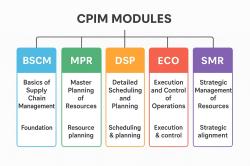Does outsourcing help or hurt businesses?
Outsourcing can have both positive and negative impacts on businesses, and its effects can vary depending on factors such as the nature of the business, the type of outsourcing, and how well it is managed. Here are some of the key pros and cons of outsourcing:
Pros of Outsourcing:
Cost Savings: Outsourcing certain functions or tasks can often reduce labor and operational costs. Companies can access a skilled workforce in lower-cost regions, which can result in significant savings.
Focus on Core Competencies: Outsourcing non-core activities allows businesses to concentrate on their core functions and strategic priorities. This can lead to increased efficiency and competitiveness.
Access to Specialized Expertise: Outsourcing can provide access to specialized skills and expertise that may not be available in-house. This can be particularly valuable for technical, IT, or specialized projects.
Flexibility and Scalability: Outsourcing offers flexibility to scale operations up or down as needed. This is especially beneficial for seasonal businesses or those experiencing growth.
Time Savings: Outsourcing tasks like customer support or data entry can save time and allow internal teams to focus on higher-value activities.
Global Reach: Outsourcing can provide access to a global talent pool and international markets, helping businesses expand their reach.
Cons of Outsourcing:
Loss of Control: Outsourcing involves relinquishing some level of control over the outsourced processes. This can lead to concerns about quality, reliability, and security.
Quality Concerns: If not managed properly, outsourcing can lead to quality issues, particularly if the outsourced provider does not meet expected standards.
Communication Challenges: Working with remote teams or providers in different time zones can lead to communication challenges, which may impact project coordination and responsiveness.
Data Security Risks: Sharing sensitive data with third-party providers can pose security risks, especially if proper data protection measures are not in place.
Hidden Costs: While outsourcing may offer cost savings, there can be hidden costs associated with managing and overseeing the outsourced relationship, such as legal fees and communication expenses.
Risk of Dependency: Overreliance on outsourcing partners can make a business vulnerable if the partner experiences issues or disruptions.
Cultural and Language Differences: Cultural and language differences can create misunderstandings and misalignments in expectations and work processes.
Negative Public Perception: In some cases, outsourcing can lead to negative public perception if it results in job loss or if customer service quality suffers.
The impact of outsourcing on a business depends on how well it is executed and whether it aligns with the company's strategic goals. When managed effectively, outsourcing can be a valuable strategy for improving efficiency, reducing costs, and accessing specialized skills. However, it's essential for businesses to carefully evaluate potential outsourcing partners, establish clear communication and performance metrics, and continuously monitor and adapt the outsourcing relationship to ensure it meets their needs and maintains the desired level of quality and control.
Outsourcing and Business Impact: Does It Help or Harm Companies?
Outsourcing is the process of contracting out certain business functions or processes to a third-party vendor. It can be a cost-effective way to improve efficiency and productivity, but it also has some potential drawbacks.
Pros of outsourcing:
- Cost savings: Outsourcing can help businesses to save money on labor costs, as well as on the costs associated with maintaining in-house infrastructure.
- Access to expertise: Outsourcing allows businesses to access the expertise of specialized vendors, which can help them to improve the quality of their products and services.
- Increased flexibility: Outsourcing can give businesses more flexibility to scale up or down their operations depending on demand.
- Freeing up resources: Outsourcing can free up internal resources so that businesses can focus on their core competencies.
Cons of outsourcing:
- Loss of control: When businesses outsource, they lose some control over the quality of the products and services they are providing.
- Security risks: Outsourcing can pose security risks, especially if businesses are not careful about selecting and managing their vendors.
- Job losses: Outsourcing can lead to job losses in the home country, as businesses move their operations to countries with lower labor costs.
Overall, the impact of outsourcing on businesses depends on a number of factors, including the type of business, the functions that are outsourced, and the vendor that is selected. Businesses should carefully weigh the pros and cons of outsourcing before making a decision.
Pros and Cons of Outsourcing: Assessing Its Effects on Business
Here are some additional factors to consider when assessing the effects of outsourcing on business:
- Industry: Outsourcing is more common in certain industries, such as IT, manufacturing, and customer service. Businesses in these industries may be more likely to benefit from outsourcing, as there are a number of experienced vendors that offer high-quality services.
- Company size: Small businesses may be less likely to benefit from outsourcing, as they may not have the resources to manage multiple vendors. Larger businesses may have more resources to devote to managing outsourcing relationships, and they may be able to negotiate better rates with vendors.
- Complexity of the outsourced function: Outsourcing more complex functions can be more challenging, as it is important to ensure that the vendor has the necessary expertise and resources. Businesses should carefully consider the complexity of the function before outsourcing it.
- Alignment with business strategy: Outsourcing should be aligned with the overall business strategy. Businesses should carefully consider how outsourcing will help them to achieve their business goals.
Strategic Outsourcing: Optimizing Business Performance and Growth
Strategic outsourcing is the process of carefully selecting and managing third-party vendors to support the achievement of business goals. It can be a valuable tool for businesses of all sizes to improve their performance and grow their operations.
Here are some tips for strategic outsourcing:
- Identify the right functions to outsource. Not all business functions are suitable for outsourcing. Businesses should carefully consider which functions can be outsourced without losing control over the quality of their products and services.
- Select the right vendors. Businesses should carefully research potential vendors and select those that have the necessary expertise, resources, and track record.
- Develop clear and concise contracts. Contracts should clearly define the scope of work, the performance standards, and the service levels.
- Manage the outsourcing relationship effectively. Businesses should regularly monitor the performance of their vendors and provide feedback as needed.
By following these tips, businesses can use strategic outsourcing to optimize their performance and grow their operations.












